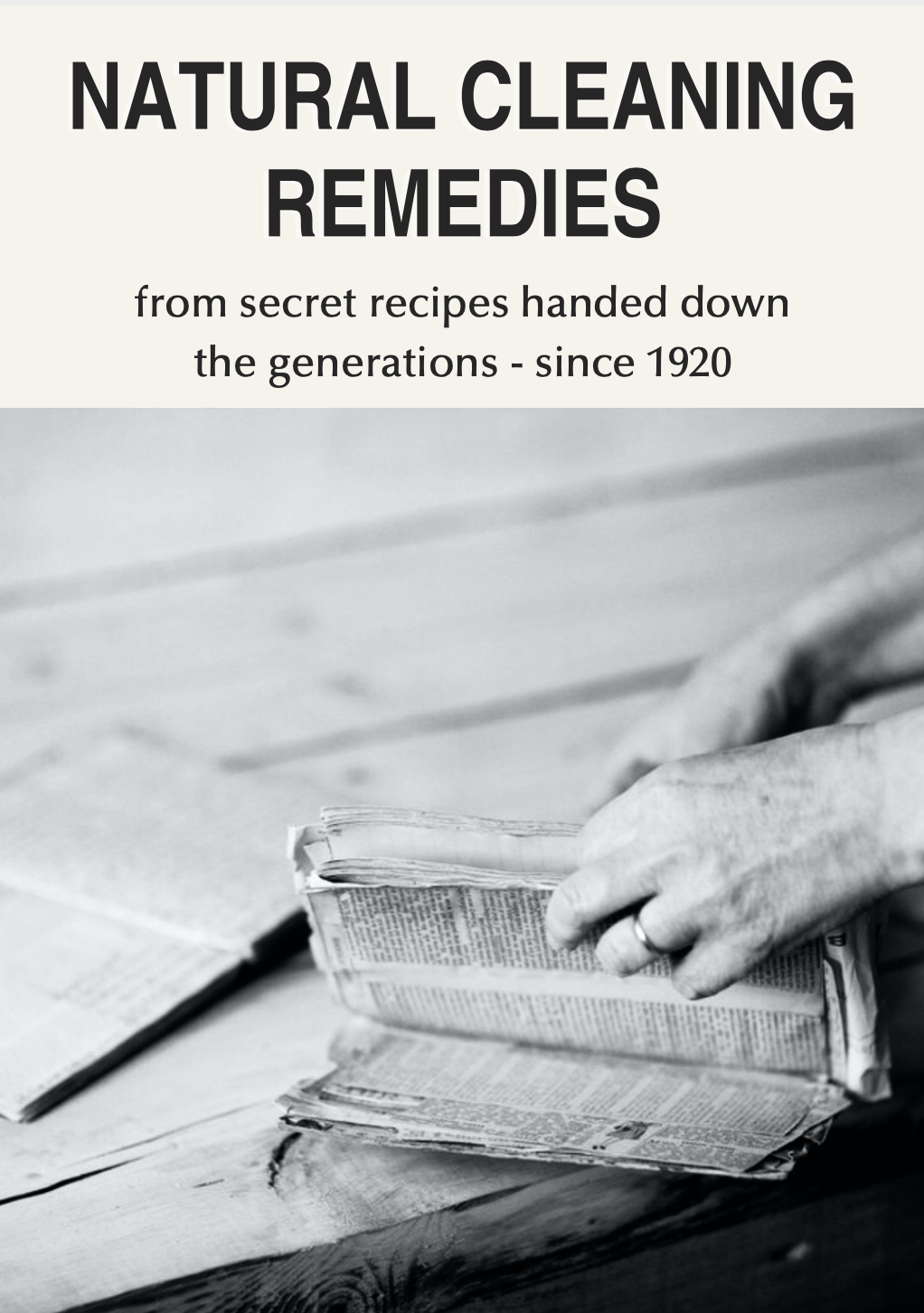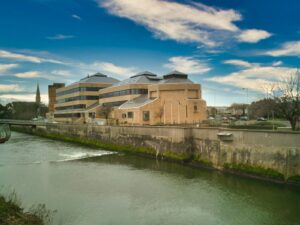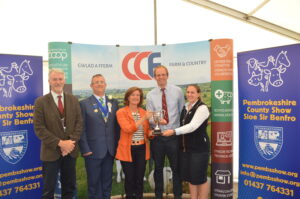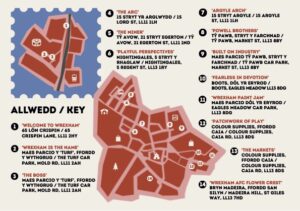Llandeilo Cleaning Company shares tips on 10 powerful stain removers you already have in your kitchen
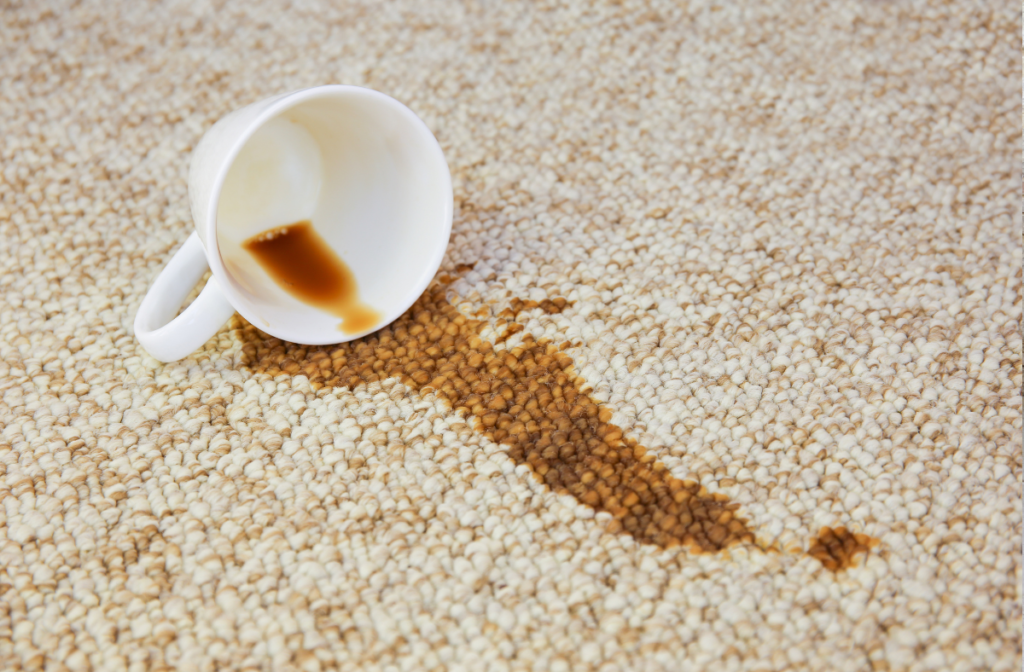
Did you know that you can remove grass stains with bicarbonate of soda, and that milk can work wonders with juice and ink stains? If your fabric has a tannin stain, don’t use soap on it – and if you have protein stains such as milk or egg, then cold water and soap are the answer.
These tips and many more are included in a new, free e-book from Llandeilo-based natural cleaning product company ALLAVARE. The company’s founder Ed Willes has put together his definitive cleaning guide which will enable you to save money and protect the environment while removing stains with ease.
ALLAVARE makes all its products at its headquarters in rural West Wales and sells them via its website and in selected shops across the UK. The business has its roots in a book of “cleaning remedies” created in the last century by housemaid Bette Smith. Bette grew up in London and went into service in 1922 at the age of 14. Starting out in Belgravia, she went on to clean in some of the UK’s most prestigious houses. She made her own cleaning products following formulas passed on by her mother, and collected them together in a book.
Bette became good friends with Ed’s mum Vanessa Willes and the secret formulas in “Bette’s Book” were first produced commercially by Vanessa’s company, Mangle & Wringer. Now, having moved from the Cotswolds to a farm in Llandeilo, Vanessa has handed Bette’s Book and the company to Ed, who has rebranded it as ALLAVARE (from the Latin “to wash”) and launched an extended range of products based on Bette’s cleaning remedies.
All ALLAVARE’s products are sustainable and contain no harsh chemicals, petrochemical ingredients, fillers, artificial fragrances or dyes. They rely on simple, natural ingredients such as lemon juice, vinegar and coconut oil. With an eye for recycling, they come in metal tins and refillable glass bottles.
Now, by sharing many of Bette’s secrets in an e-book, Ed hopes to help his customers get even more out of natural cleaning.
Ed Willes said:
“We believe in helping our customers save money and protect the environment, so I decided to share many of the secrets from Bette’s Book with your customers for free. Her cleaning ‘remedies’ as she called them are simple and effective, and more people should have the chance to share in this knowledge. The e-book outlines the key types of stain and how to tackle them using ingredients you probably already have in your kitchen cupboard – and it includes recipes for cleaning scrubs and sprays, loo cleaner, floor cleaner and more.”
To download the full e-book head here: https://allavare.co.uk/pages/natural-cleaning-guide-ebook
10 natural stain removers and how to use them
- Bicarbonate of soda
Use for: mud, grass and perspiration
A fantastic natural stain remover. It is safe and non-toxic and works on most surfaces to clean and deodorise them. In the laundry it can be added to hand washed items to help break down protein stains. As a stain remover make into a paste with a little water and leave on for 30 – 60 minutes.
- Cornflour
Use for: grease stains
Sprinkle onto fabric and rub gently. Leave for 30 – 60 minutes and brush off. Launder as normal.
- Glycerine
Use for: tannin stains
Mix glycerine 50:50 with water and work into the back of the stain. Leave for 30 minutes. Launder as normal.
- Milk
Use for: juice stains and washable inks
The original enzyme cleaner.
- Lemon juice
Use as a: mild bleach
Apply directly to the stain and leave to dry. This is particularly effective on white fabrics and if left in the sun works doubly fast. On coloured fabrics a colour test is recommended.
- Eucalyptus oil
Use for: grease stains, oil and tar
A naturally distilled oil. Add a few drops directly to the stain and leave for 10-15 minutes. Rub gently for thick tar stains. Air dry and repeat if the stain isn’t completely removed.
- Soda water
Use for: tannin stains
Great remedy for coffee, tea, wine and other tannin stains.
- Soap
Use for: grease stains
Great for collars and cuffs where it can be rubbed on prior to washing in hot water. Never use soap on tannin stains.
- Washing up liquid
Use for: grease stains
It should preferably be a colourless, biodegradable, plant based detergent, which is fragrance free. Apply directly and agitate the fabric. Rinse in hot water.
- White vinegar
Use as: a mild bleach
Perfect for use on urine stains as a deodoriser, mud and grass. Soak for 1 – 2 hours. On coloured fabric a colour test is recommended.
